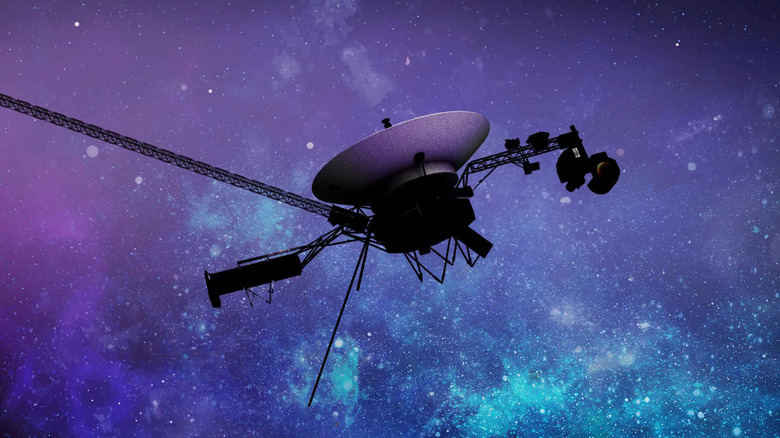Sorry, UFO Fans: New Theory Says Alien Tech Isn't That Advanced
Everyone loves a good alien invasion story, preferably one with city-sized ships and physics-defying tech. There's just one big problem with that. The Milky Way is estimated to contain 100 to 400 billion stars, and the universe is speculated to have existed for 14 billion years. That's an incomprehensible number of chances for life to arise. Yet, decades of searching have yielded us nothing. This contradiction is famously known as the Fermi Paradox, which is tied to the Rare Earth hypothesis, and it's left scientists scrambling for an explanation.
Now, a new theory by Robin Corbet, a NASA-based researcher at the University of Maryland, is here to explain. His new paper, published on the preprint server arXiv, argues that alien tech might not be the "super-science" we all imagine. Corbet thinks extraterrestrials are only marginally more advanced than we are. In an interview with The Guardian, he paints a picture of a civilization with an "iPhone 42" while we're still on the "iPhone 17". The idea is that they simply hit a technological plateau not far beyond our own, thanks to physical limitations. He went as far as claiming that there's a fundamental limit to technological development. This means that for aliens, progress just... stops. They never achieved sci-fi stuff like teleportation or even faster-than-light travel, which scientists now posit may be impossible anyway. This also means that complex metrics, like the famous Kardashev scale that ranks civilizations by energy use, automatically become irrelevant.
Back on planet Earth, we might even be seeing signs of this already. Corbet's paper notes that scientific papers and patents are becoming less "disruptive". We've also seen US per capita energy consumption decline since 1979, hinting we aren't all destined to be endlessly power-hungry. Perhaps aliens are dealing with the same challenges as we are.
Or maybe they just got bored
Scientists agree that a civilization with even modest rockets could colonize the entire galaxy in just a few tens of millions of years. So why haven't they? Corbet's theory covers this part as well. It suggests they just couldn't be bothered. After exploring their local neighborhood, they simply got bored and gave up on space exploration. Interstellar travel is, after all, incredibly difficult. Our own Voyager 1 probe would need about 75,000 years just to reach Proxima Centauri, our closest stellar neighbor. Corbet also suggests that after sending out missions to thousands of star systems, aliens would find that not much new scientific information was being returned. So the thrill of discovery just faded.
Taking this theory seriously would mean a radical shift in our approach to the search for alien life. For one, it would mean we can stop searching for massive astro-engineering projects like Dyson spheres. We should also give up on finding powerful, long-duration beacons, which would be incredibly expensive to run for millions of years.
Finally, the paper concludes that in this model, reports of UFOs are unlikely to be extraterrestrial visitors. So what's left? The boring stuff. We should be scanning for "leakage radiation," the accidental radio and TV signals they spill into space, just like we do. Except we'll need better ears. Our own signals already get so weak they're indistinguishable from space noise by the time they reach Proxima Centauri. New projects like the Square Kilometre Array (SKA) might finally be sensitive enough to detect an Earth-like analog up to 200 parsecs away. At the end, if Corbet is right, we aren't looking for gods. We're just listening for neighbors who are just as stuck as we are.

